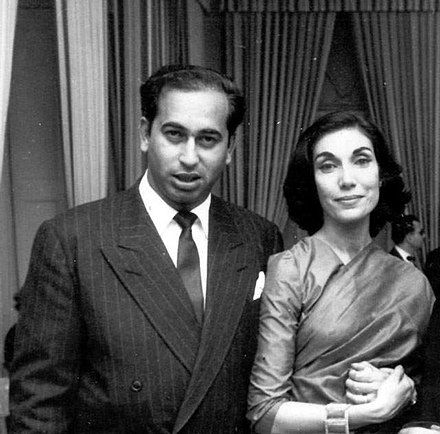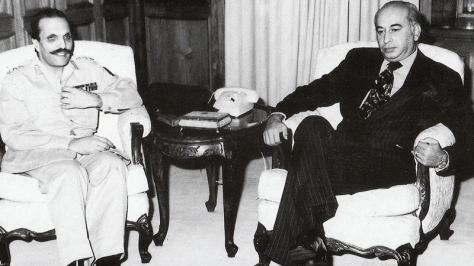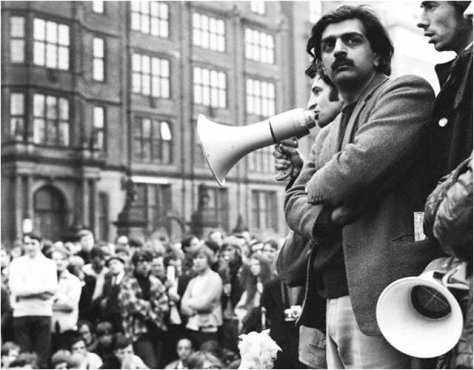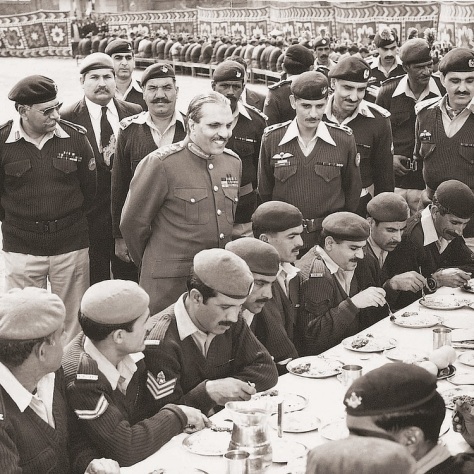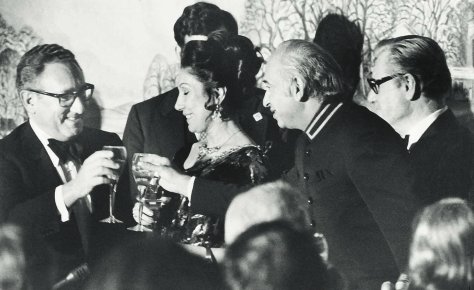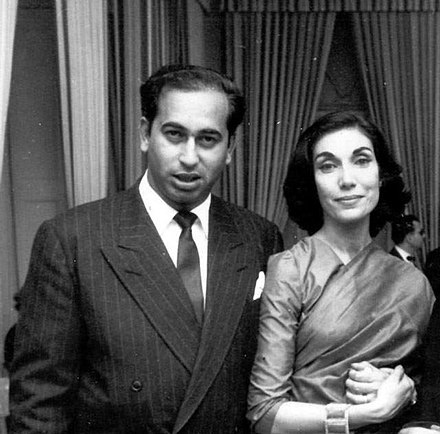STORY & INTRODUCTION

The Reckoning is a 4-episode BBC One docu-drama miniseries based on the life of Jimmy Savile. If you are a British, the man needs no introduction. For those who don’t know him, this man was a popular DJ who later became a well-known figure when he joined the BBC where he hosted ‘Top of the Pops‘ and ‘Jim’ll Fix It‘. He was heavily involved in charity work and his undoubtedly biggest achievement was raising £40 million in charity for different medical institutes. With this humanitarian effort came his name into much prominence and stood shoulder-to-shoulder with Margaret Thatcher and the Royal Family.
This iconic figure, who actually became easily one of the most respectful, beloved, heroic, and a Godly figure in Britain’s 20th century, had kept all of them happy for around sixty years. But almost a year after his death, the world realized that there is a small part of the world to whom he also made cry with agony. The investigations proved to everyone’s massive shock that this Jimmy Savile had sexually abused/assaulted more than five hundred people, mostly underage, as young as five. Jimmy, Britain’s beloved icon, turned out to be serial sexual abuser, rapist, and pedophile.
BBC’LL FIX IT?

When Jimmy Savile’s victims showed up one after the other and the world got to know the truth that Savile had been raping children and teenagers for more than fifty years, so many questions were risen on different organizations and institutes especially the broadcasting giants the BBC. This man gave four decades to the BBC. It is impossible to assume that such an organization had no clue of his backdoor offences. They of course knew what he was doing and there was no stopping at all. That builds an opinion that the BBC protected his legacy. But after his death, the damage on the BBC’s legacy was done.
Hence, the BBC came up with this show and I must say that this move has to be one of the greatest media ironies of all ironies. I would like to quote Pragya Agarwal who wrote in one of her articles for The Independent:
“It also feels insidiously callous and thoughtless that an organisation that played a role in glorifying a sex offender and profiting from him [the BBC], while covering up his actions for many decades, are once again capitalizing on his “brand” and the fascination that viewers have with monsters and true crime.”
I mean straight up. I was excited that a show on Jimmy Savile was announced but I was very surprised that none other than the BBC was funding the project. But after watching it, I must say that the BBC has painted different shades. The BBC shows his true colors and dramatizes how BBC was fooled by this man. Even showed us that he was not considered for ‘Jim’ll Fix It’ in the first place because of his mysterious personality.
Throughout the show, you will notice that the BBC keeps popping and one can convincingly declare it to be intentional. Like I said before, it is ironic that BBC produced the show on someone to whose arse they protected for a long time. No doubt it is either brave or foolish to fund a project, so their side of story has to be wildly clear that how and why they protected him. Instead, BBC portrays themselves that they had no clue about his crimes due to lack of evidences. That makes them more naive.
REAL VICTIMS

Due to the nature of its being a four-episode miniseries, each episode begins and ends with four real-life Jimmy Savile victims with their names altered for obvious reasons. Moreover, their narrative has been dramatized in the show. Not that the others got unrecognized, but in a limited capacity, I will take these four cases as representation of all the victims. For sure, no medium can cover all the victims at all.
Despite being a show about a sex predator, there is no sign of nudity or rape scenes at all. The darkest dramatizing, if I remember, is grabbing. And I am okay with the show not shooting to those haunting moments of the victims obviously to maintain respect and solidarity who suffered. The makers handled the sensitive content very well.
Some of the scenes were very impactful. I liked the one where he takes the kid into his office and then he realizes that something horrible is about to happen. The very next scene, the frame shows up that says Jim Fixed It For Me.
I do not wish to harm the victims of all ages and time but something that disturbs me about not that predator but the teenage victims is the immense blindness of being the rat of the pied piper. The dramatization depicts that young girls followed him to his home. How come did you not sense that you were not entering to someone’s home without a guardian but into a danger zone? How could you trust a stranger to an extent to visit to his place? Why didn’t you check your parents or any guardian at all that this man was inviting you to his home? A girl literally went with him to his residence with such excitement on her face until he locked the door that brought her back to her senses. What were you thinking when you were going with him? That the grandpa will feed you with a shepherd’s pie? I am not blaming the victims for the horrors this man inflicted, I am reasoning your stupidity that gave him the advantage.
TO BE OR NOT TO BE?
Many of you around the world opine that TV shows and films based on people involved in such crimes must not be put to work. Reason? That will encourage criminals and break the victims who are already suffering.
I am not in full but partial disagreement. Because, in this line of work, people either glamorize the dramatization of real-life events or forward their accurate screenplay to compel the viewers with the eye-openers in a dramatic way that they will watch for both reasons, passing their time and knowing the facts.
Yes, for that we have documentaries but that format cannot go mainstream and eye-catching to most of the general viewers. Therefore, live-action shows like ‘The Reckoning’ becomes necessary to understand what a dirty old man he was. In a couple of years, there have been two tv shows on Savile. Previously, there was a 2-episode series on Netflix about him, “Jimmy Savile: A British Horror Story”. Because it was a documentary but not live-action, many of you didn’t bother to take interest but did for this show because someplays him and becomes more direct. So we are more interested to know in live-action than a documentary.
STEVE COOGAN

We all are very familiar to this great actor and comedian Steve Coogan. A versatile like him who has played many different roles in his career must be praised for being bold enough to agree playing Jimmy Savile and face the heat. I’ll say he took the chance because he knew that this role will garnish his filmography. And there could have been no better actor than him to play this role.
The moment when Steve Coogan voices Jimmy Seville, my eyebrows rise and I am taken aback when he acts Jimmy Seville. The mannerism, the eccentric persona, the Yorkshire accent, the way he smokes his cigar, were all well caught up. I never felt a vocal difference between Steve and Jimmy which is remarkable. Perhaps, it was a piece of cake for Steve as he is from Lancashire and Jimmy was from Yorkshire, and if I am not wrong, both accents are quite similar. But one edge of impression was quite missing from Steve Coogan and that is Jimmy’s crazy facial expressions. There was no craziness on his face. The whole time, due to cold facial expressions, he looked like a very old Moe Howard or Glenn Close in a white granny wig.
But if this show becomes successful or well-known that is only because of Steve Coogan’s presence. It was a fabulous performance where not for once I felt if he was in the show but Jimmy himself. He was that excellent.
CLOSING REMARKS

Must I believe that the BBC has done a favor by making a miniseries and somehow made an effort clearing their name? Not at all. The Reckoning is not at all reckoning. It shows the rise and fall of Jimmy Savile. And while he was grabbing all that national attention for decades, the BBC installed some episodic moments of his going pervert and committing the crime. There were more insights in the Netflix documentary than this series. Nothing much new did I discover about him.
I must also praise the BBC that the one major pull on Savile’s intentions was rightly handled. Which, as a matter of fact, is dogmatizing that the entire humanitarian effort of his lifetime was for the cover up of his crimes. The question mark over his humanitarian effort was raised several times which indirectly means that the BBC now finally but behind close doors, admit that funding and shielding this man is a permanent damage to their legacy. The BBC will never go down for sure but the Jimmy Savile chapter, no matter how many justifications they present to the audience, will always hurt them.
RATINGS 5/10
SUBSCRIBE TO MY YOUTUBE CHANNEL AND WATCH MY TV REVIEW HERE
FOLLOW ‘THE DARK KNAIK’ ON OTHER SOCIAL PLATFORMS
TIKTOK https://www.tiktok.com/@thedarkknaik
FACEBOOK https://www.facebook.com/thedarkknaik
INSTAGRAM https://www.instagram.com/thedarkknaik/
LETTERBOXD https://letterboxd.com/TheDarkKnaik/



















